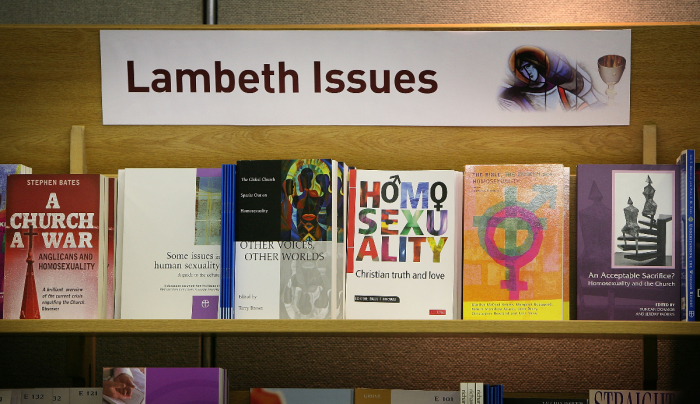Lambeth Conference nixes resolution language reaffirming biblical definition of marriage

Anglican Communion leaders will no longer consider a measure that would reaffirm the biblical definition of marriage as being between one man and one woman at their decennial conference following an outcry from theological liberals.
Shortly before the beginning of the Lambeth Conference in London, a major gathering of Anglican bishops that happens roughly every ten years and will run from July 26 to Aug. 8, organizers announced significant changes to a resolution that would have reaffirmed a 1998 statement opposing same-sex marriage.
In the days leading up to the conference, there was much outcry from liberal attendees over the inclusion of a call — similar to a resolution — that would define marriage as being exclusively "between a man and a woman."
The original draft language of the resolution in question, known as the Lambeth Call on Human Dignity, called for "a reaffirmation of Lambeth I.10 that upholds marriage as between a man and a woman and requires deeper work to uphold the dignity and witness of LGBTQ Anglicans."
In an announcement Tuesday, the conference shared updated language of the Lambeth Call on Human Dignity that is more neutral in rhetoric, noting that some provinces in the communion affirm same-sex marriage while others do not.
"Many Provinces continue to affirm that same gender marriage is not permissible. Lambeth Resolution I.10 (1998) states that the 'legitimizing or blessing of same sex unions' cannot be advised," states the present text.
"Other Provinces have blessed and welcomed same sex union/marriage after careful theological reflection and a process of reception. As Bishops we remain committed to listening and walking together to the maximum possible degree, despite our deep disagreement on
these issues."
The revision came in response to "widespread responses from bishops and others."
At first, attendees were told they could only respond to the call by either accepting it or saying that they felt it "requires further discernment."
Lambeth Conference organizers revealed that a third option would be given for attendees to choose from. The third response option states: "This Call does not speak for me. I do not add my voice to this Call."
Bishop Tim Thornton, the chair of the Lambeth Conference's Lambeth Calls subgroup, said in a statement that the committee listened "carefully and prayerfully to what bishops and many others have said in response to the draft Calls, especially that on Human Dignity."
"Archbishop Justin has invited the bishops of the Anglican Communion to come together as a family to listen, pray and discern – sometimes across deeply-held differences," Thorton said.
Jayne Ozanne, an LGBT activist in the Church of England, told The Guardian that while she supported the changes, she is "still deeply troubled by the tone of this communique."
"It does not appear to address any of the concerns relating to process that so many have flagged up, nor does it recognise the breakdown in trust that there is now in relation to the [discussions on sexuality and identity] here in England," said Ozanne.
Over the past several years, an increasingly divisive debate has hit the Anglican Communion's member churches related to the issues of homosexuality and gay marriage.
Although many members, like the United States-based Episcopal Church and the Church of Scotland, have embraced same-sex marriage, the fastest growing churches of the communion continue to reject same-sex marriage.
Among those in opposition to the original language of the Lambeth Call on Human Dignity were bishops of The Episcopal Church.
In 2016, a meeting of Anglican Primates hosted by Archbishop Justin Welby voted to suspend The Episcopal Church from its membership rights in the communion for three years due to its theologically liberal stance on homosexuality.
"The traditional doctrine of the Church in view of the teaching of Scripture, upholds marriage as between a man and a woman in faithful, lifelong union. The majority of those gathered reaffirm this teaching," stated the Primates in 2016.
"Recent developments in The Episcopal Church with respect to a change in their Canon on marriage represent a fundamental departure from the faith and teaching held by the majority of our Provinces on the doctrine of marriage. Possible developments in other Provinces could further exacerbate this situation."
The last Lambeth Conference was held in 2008. The 2020 conference was postponed two years due to the COVID-19 pandemic. This is the first Lambeth Conference led by Archbishop of Canterbury Justin Welby.





























